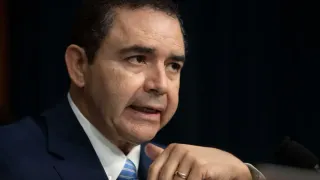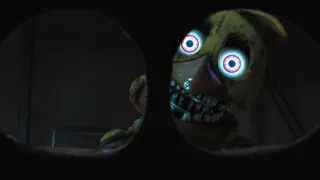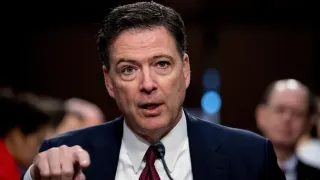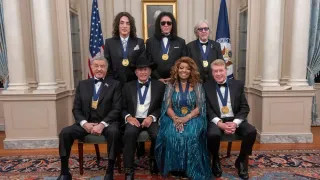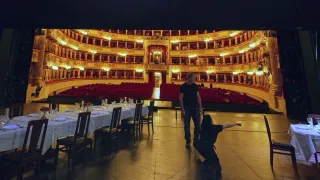October 9, 2024
'Studio One Forever,' Marc Saltarelli's Intimate Connection to the Iconic Nightclub
Steve Duffy READ TIME: 9 MIN.
EDGE: Tell us about honoring the legacy of those who lost their lives during the darkest days of the AIDS crisis and the vital part that Studio One played in it.
Marc: It probably wouldn't be getting the attention it's getting if we ignored it. All of the interviews played out the way that the film does. We start by remembering our youthful joy of coming out and being gay, and then we get to the AIDS epidemic, and then it takes away some of the joy. Inevitably, the interviewees would break down because even after 40 years, PTSD is still raw. It still hurts them to remember what that time was like. Our government, including President Reagan, didn't mention the word AIDS. It was a gay disease. Who cares? Nobody cares–a different response from the CDC and Dr. Fauci. He was involved in the early days of AIDS research, developing medications that would keep people alive and healthy. I believe from every horrible thing that happens, there's always a silver lining of some good.
EDGE: Were there any stories that you weren't able to tell?
Marc: Sure. It was a process, and I had a lot of help. Initially, I had a two-and-a-half-hour cut, which is probably too long for a documentary. There were a lot of scenes I had to cut. I hated cutting them, but they're available on Blu-Ray and DVD as bonus features. Stephen Israel and Michael Alden, both producers of the film, responded to it even in its raw form. With their help, we started pulling anything out that didn't directly relate to what we were talking about. There were so many tangential things that were so interesting, but I had to stick with what related directly to telling this story. And thank goodness for Michael Koth, who was the front bartender of Studio One. He was one of our first interviews. People still remember him. He was the first face you saw when you entered the club. He is a star. His honesty in telling his personal story and his struggle with addiction – without that story, the film would not be half of what it is. I'm so grateful for him. He's been traveling with us to festivals, and people love talking to him and seeing him. He is the heart of our film.
EDGE: Chita Rivera gives one of her final interviews in the film. How lucky are you to have had her reminiscing about Studio One before her passing?
Marc: It's the highlight of my life to have been able to meet and work with her. I always knew that Studio One and the Back Lot became a sensation because of her. Back in the 1970s, when she was rehearsing the original Chicago production with Bob Fosse, Fosse famously had a heart attack, and the show was shut down for six months to a year. She had nothing to do, so Liza suggested that she put together a one-woman show. So, with the help of Kander and Ebb, they wrote the show, and she brought it to Scott Forbes, and the Black Lot exploded from there. Liza invited all her friends and legendary people from Hollywood's golden era to see shows or perform there. Guest included Betty Davis, Jimmy Stewart, Cary Grant, and many more.
It was the first merging of old and new Hollywood – all because of Chita. When I reached out to her assistant, Rosie, she told me that Chita was so excited to be a part of this film because she wanted to make sure to set this record straight that she was the reason the backlot became the sensation it was. We booked a trip to New York and rented a beautiful suite for Chita to film her interview. I had the gall to ask her if she would mind going to the theater where Chicago played, now the Hamilton Theater, and doing a few Fosse poses for me. I got to pretend I was Bob Fosse for a minute and take beautiful photos of her. It was a shock when I found out that she passed away because even at 92, she was still performing and still doing things. We all miss her. I'm glad that she is in this film, and if you get the Blu-ray DVD, one of the bonus features is our entire Chita interview, which is beautiful.
EDGE: Studio One was more than a disco; it was...?
Marc: A revolution. In some ways, the revolution started there and elsewhere, but certainly for LA. It was bold to open up a big gay disco in 1974, which began the revolution.
"Studio One Forever" will be available on Prime and Apple TV.
Watch the trailer here:
